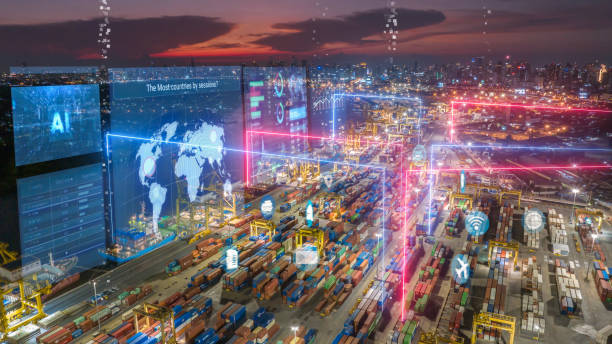The global supply chain has always been the backbone of modern business, but in 2025, it is also one of its biggest challenges. From manufacturing to logistics to last-mile delivery, every link in the chain depends on skilled people who can manage complexity, adapt to disruptions, and keep goods moving around the world. The problem is, there are not enough of them. The talent shortage in supply chain hiring has reached a critical point, and it is reshaping how companies operate and compete.

This shortage is not just about missing workers on factory floors. It stretches across every level of the supply chain workforce, from mid-level managers to senior executives. Companies are struggling to find leaders who can blend technical expertise with strategic vision, who understand both the realities of warehouse operations and the bigger picture of global trade policies. These leaders are rare, and in 2025, they are in higher demand than ever before.
So why is there a shortage? First, the pace of change in global trade and technology is outpacing the development of talent. Automation, artificial intelligence, and digital tracking systems have transformed supply chains, but the talent pool has not grown fast enough to match these new demands. Second, younger generations are not rushing into supply chain careers at the same rate as older ones are retiring, leaving a widening gap. And third, global events from pandemics to geopolitical tensions have made supply chains more complex and more critical, further increasing the demand for skilled professionals.
For businesses, the impact is real. Companies that cannot find the right people face delays, rising costs, and reduced resilience in times of disruption. The talent shortage does not just threaten efficiency; it threatens competitiveness. Imagine two companies: one that secures top supply chain leaders who know how to navigate disruptions with data-driven strategies, and another that scrambles to fill roles with underprepared hires. The difference could determine who thrives and who collapses in the next global crisis.
In response, businesses are rethinking how they attract, retain, and develop supply chain talent. Competitive salaries are no longer enough. Professionals want flexibility, growth opportunities, and a clear sense of purpose. They want to know they are not just moving products, but contributing to sustainability, innovation, and global progress. Forward-thinking companies are responding by investing in training, creating pathways for career growth, and aligning supply chain roles with larger business values like sustainability and community impact.
Another important development in 2025 is the rise of global hiring strategies. Companies are no longer limiting themselves to local talent pools. Instead, they are building cross-border teams, using digital collaboration tools to bring together professionals from different regions. This opens access to a wider range of skills, but it also introduces new challenges, such as managing cultural differences and navigating international labor laws. CEOs and HR leaders who can manage this global workforce effectively will set their organizations apart.
Technology is also part of the solution. Data analytics, AI-driven recruiting, and digital platforms are helping companies identify talent faster and more accurately. But the technology is only as good as the strategy behind it. Leaders must still ask: are we hiring for today’s needs, or are we preparing for the future? The best companies will use technology not just to fill roles quickly, but to forecast the skills they will need five or ten years down the line, and begin building those teams now.
For supply chain professionals, the shortage presents opportunity. Those with the right skills and adaptability are in an enviable position, able to command competitive salaries and choose from multiple offers. But it is not just about being in demand it is about stepping into roles that have enormous influence on global business stability. Supply chain leaders today are no longer behind the scenes; they are in the boardroom, shaping corporate strategy and driving innovation.
The global supply chain talent shortage in 2025 is a challenge, but also a chance. It is pushing companies to rethink hiring, embrace new technologies, and redefine what it means to be a supply chain leader. Those who act quickly, invest in people, and adapt to this new reality will not just survive the shortage they will use it as a catalyst to build stronger, smarter, and more resilient organizations for the future.
Why is there a global supply chain talent shortage in 2025?
Because rapid technological change, retiring professionals, and complex global trade challenges are outpacing the growth of skilled talent.
How are companies responding to the supply chain talent shortage?
By adopting global hiring strategies, offering better career development, and leveraging AI-driven recruiting tools.
What does the shortage mean for supply chain professionals?
It means professionals with the right skills are in high demand, with opportunities for leadership and influence across global industries.
Can technology solve the supply chain talent shortage?
Technology helps, but the real solution lies in combining digital tools with long-term strategies for talent development and retention.
Struggling to find top supply chain leaders? Hathaway Worldwide specializes in global executive recruitment. Connect with us today.



